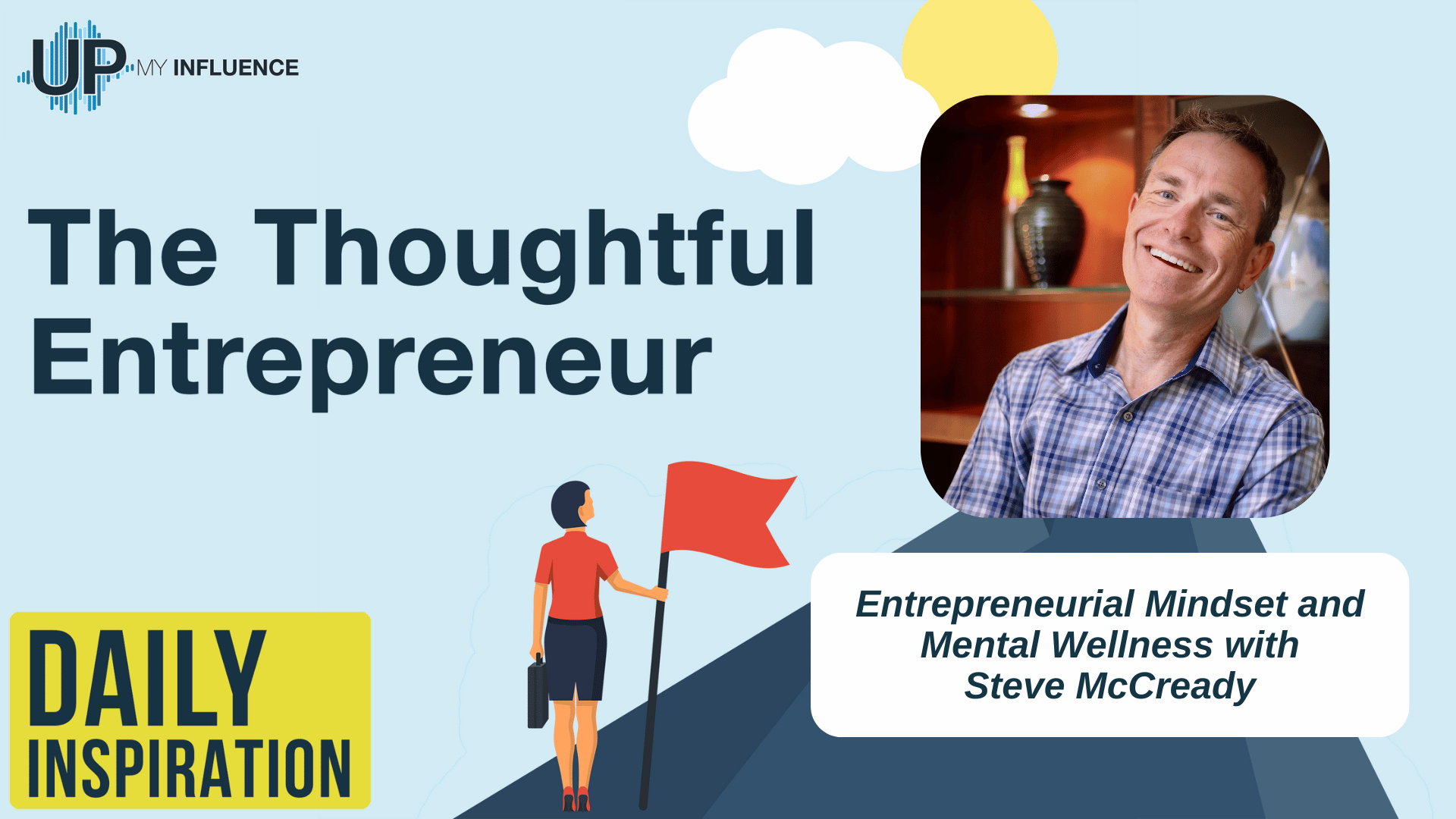THE THOUGHTFUL ENTREPRENEUR PODCAST
In this episode of the Thoughtful Entrepreneur, your host Josh Elledge speaks to a Psychotherapist and Coach for solo and small business owners, Steve McCready.

Steve McCready is a former psychotherapist and marriage and family therapist who has transitioned to coaching, leveraging his extensive background in mental health. Through his website, stevemccready.com, he offers guidance to individuals navigating the challenges of entrepreneurship.
His coaching emphasizes mental wellness, recognizing the high stress and potential for burnout in the entrepreneurial journey. Steve provides practical strategies for managing stress, preventing burnout, and maintaining a positive mental environment, focusing on helping entrepreneurs thrive amidst the challenges.
Key Points from the Episode:
- Steve McCready's transition from psychotherapy to coaching
- Insights and expertise on coaching and mental wellness for entrepreneurs
- The impact of mental wellness on entrepreneurship
- Strategies for entrepreneurs to maintain mental wellness
- The role of coaching in supporting entrepreneurs
- The challenges and opportunities in coaching for entrepreneurs
- The importance of mental wellness for business success
About Steve McCready:
Steve McCready leverages his extensive background in psychotherapy and his profound understanding of the human brain to offer specialized coaching for small business owners. With over two decades of experience helping individuals learn, grow, and enhance their performance, he focuses on empowering entrepreneurs to use their businesses as tools for positive impact. His approach is tailored to boost their focus, productivity, and confidence, enabling them to become exemplary leaders in their respective fields.
Steve aims to transform business owners into exceptional performers, adept at overcoming mental and emotional hurdles that may impede their success. He provides insightful guidance to help them navigate challenges, avoid common pitfalls, and achieve their ambitious goals. Steve's method is particularly effective for those looking to make significant changes or undertake major projects they've previously struggled to accomplish. His support helps clients break through personal barriers and realize their full potential, making what once seemed unattainable a tangible reality.
Coaching Services:
Steve McCready leverages his extensive background in psychotherapy and his profound understanding of the human brain to offer specialized coaching for small business owners. With over two decades of experience helping individuals learn, grow, and enhance their performance, he focuses on empowering entrepreneurs to use their businesses as tools for positive impact. His approach is tailored to boost their focus, productivity, and confidence, enabling them to become exemplary leaders in their respective fields.
Steve aims to transform business owners into exceptional performers, adept at overcoming mental and emotional hurdles that may impede their success. He provides insightful guidance to help them navigate challenges, avoid common pitfalls, and achieve their ambitious goals. Steve's method is particularly effective for those looking to make significant changes or undertake major projects they've previously struggled to accomplish. His support helps clients break through personal barriers and realize their full potential, making what once seemed unattainable a tangible reality.
Tweetable Moments:
02:20 – “I know I can help other people become more empowered and bigger, stronger, better versions of themselves, and that's how I'm trying to do my part to help things move forward in the world.”
Links Mentioned in this Episode:
Want to learn more? Check out Steve McCready’s website at
Check out Steve McCready on LinkedIn at
https://www.linkedin.com/in/stevemccready/
Check out Steve McCready on Instagram at
https://instagram.com/stevebmccready
Check out and sign up for Steve McCready’s free daily mail at
https://steve-mccready.ck.page/a03fec284c
More from UpMyInfluence:
We are actively booking guests for our The Thoughtful Entrepreneur. Schedule HERE.
Are you a 6-figure consultant? I’ve got high-level intros for you. Learn more here.
What is your #1 Lead Generation BLOCKER? Take my free quiz here.
Want to learn more about all the podcasts managed by UpMyInfluence? Opt in here.

